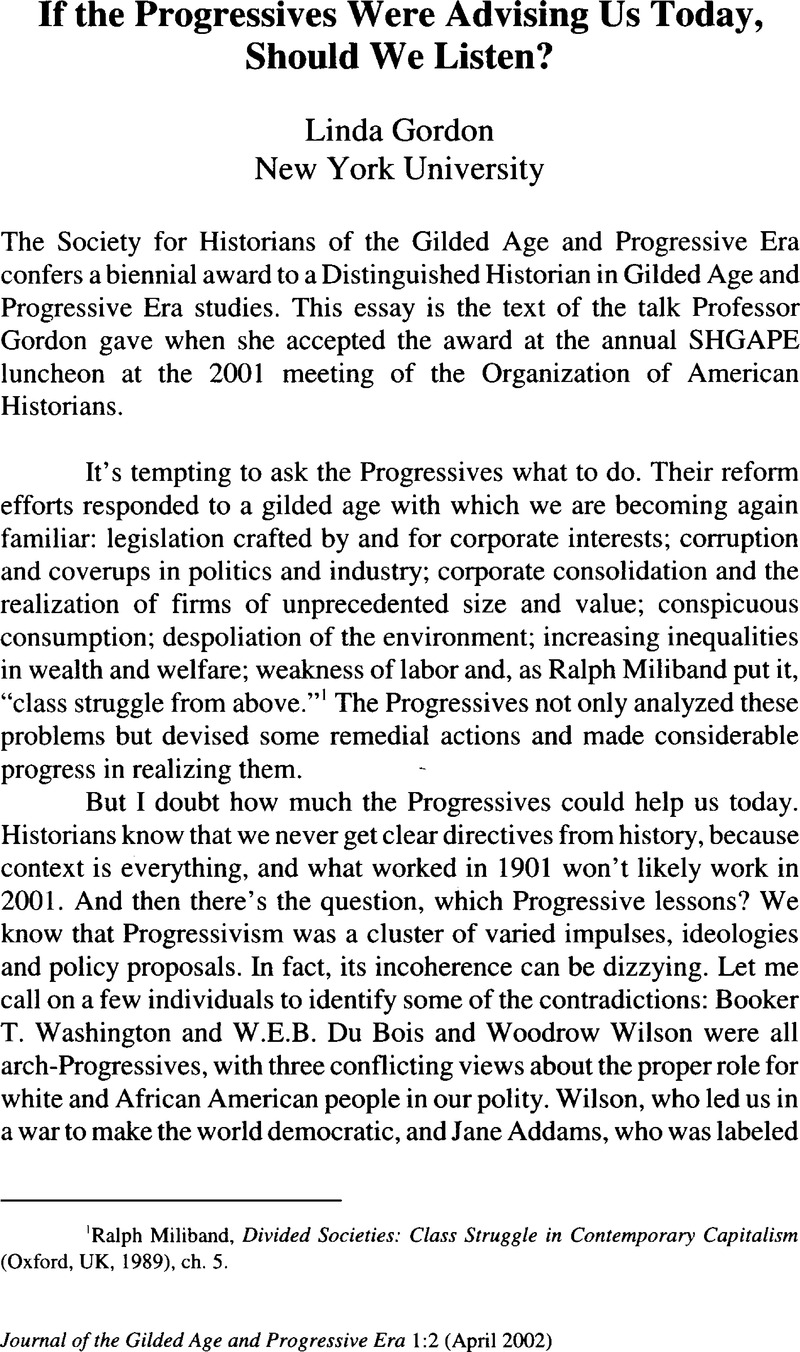Article contents
If the Progressives Were Advising Us Today, Should We Listen?
Published online by Cambridge University Press: 08 November 2010
Abstract

- Type
- Other
- Information
- Copyright
- Copyright © Society for Historians of the Gilded Age and Progressive Era 2002
References
1 Miliband, Ralph, Divided Societies: Class Struggle in Contemporary Capitalism (Oxford, UK, 1989), ch. 5.Google Scholar
2 October 11, 2001, addendum: Talk of reducing the size of the federal government has subsided into near invisibility following the terrorist attack of September 11, 2001 and the cry for huge federal investment in reconstruction and security.
3 Scott, , Seeing Like a State: How Certain Schemes to Improve the Human Condition Have Failed (New Haven, 1998).Google Scholar
4 Martin, George, Madam Secretary. Frances Perkins: A Biography of America's First Woman Cabinet Member (Boston, 1976), 239–42.Google Scholar
5 Wandersee, Winifred D., “‘I'd Rather Pass a Law than Organize a Union’: Frances Perkins and the Reformist Approach to Organized Labor,” Labor History 34 (Winter 1993): 5.CrossRefGoogle Scholar
6 Martin, , Madam Secretary. Frances Perkins, 388.Google Scholar
7 Interview with Frances Perkins, Columbia Oral History Project, Book I, 57.
8 Perkins interview, I, 67.
9 Perkins interview, I, 68.
10 Perkins interview, I, 120.
11 Perkins interview, I, 74–75.
12 Perkins interview, I, 72–74.
13 Martin, , Madam Secretary, ch. 29.Google Scholar
14 Quoted in Weiss, Nancy J., Farewell to the Party of Lincoln: Black Politics in the Age of FDR (Princeton, 1989), 49.Google Scholar
- 5
- Cited by




